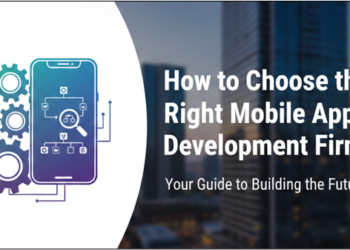In 2025, social media content creation is all about inventiveness, speed, and shareability. One trend set to gain momentum is the multiple face swap video online free editing tools. Makers are presently remixing gathered recordings, memes, and challenges by swapping numerous faces within a single clip to add humour, storytelling, or impeccable shock value. Whether you’re creating content for TikTok, Instagram Reels, or YouTube Shorts, this highlight makes a different substance stand out in a crowded digital space.
With advanced AI devices like AdpexAI, it’s never been simpler to produce multiple video face swap clips rapidly and for free, indeed, if you don’t have any editing involvement. Let’s investigate why this slant is taking over social media and how makers can utilise it effectively.
Why Multiple Face Swap Video Tools Are Going Viral
Face swapping itself is not a new phenomenon, but AI has taken it to a whole new level. Instead of manually editing clips frame by frame or relying on one-to-one swaps, creators can now create multi face swap video online free. That means you can replace multiple faces within a single video, be it a family gathering, a group dance challenge, or a friend’s birthday montage.
The growing appeal of multiple face swap videos lies in their ability to:
- Personalise existing memes or video templates.
- Make group content more entertaining.
- Allow fans to insert themselves (and their friends) into their favourite music videos, shows, or skits.
When it’s done well, it’s both funny and visually impressive—exactly what works best on today’s most visual platforms.
Best Free Tool: AdpexAI’s Multiple Face Swap Features
When it comes to reliability and ease of use, AdpexAI stands out as one of the best platforms offering multiple face swap videos online for free without a watermark. Unlike many other tools that provide only single face swaps or apply watermarks unless you upgrade, AdpexAI delivers high-quality results with no hidden costs.
Key features include:
- AI Multiple Face Swap: Upload a video with several people, and the tool will automatically detect faces for individual or group swapping.
- Multiple Video Face Swap: Ideal for music videos, dance challenges, or sports clips featuring various players. Swap up to 3 or more faces in one pass.
- GIF Face Swap: Want to make short-looping memes instead of full videos? GIF options are available too.
- Image Face Swap and AI Face Swap Video: For single photos or standard video use when you’re not working with groups.
AdpexAI doesn’t require downloads or technical knowledge. Just upload your file, select the faces to swap, and let the tool process everything with AI precision.
Creative Ideas for Using Multi-Face Swap Videos
1. Squad Edits for Memes
Take a trending meme format and replace it with your friend group. It’s a fast way to personalise viral trends and make inside jokes hit harder.
2. Birthday or Event Highlights
Make a birthday shoutout more fun by editing in a party video where everyone’s face is replaced with the guest of honour’s—or even their favourite celebrity.
3. Group Dance Challenges
Got a dance clip with 3–5 friends? Swap everyone’s faces with cartoon characters, pop stars, or even your own—viewers love the unexpected.
4. Fan Remakes
Recreate your favourite music video scenes or movie clips by inserting your entire friend group. These go viral when done with good humour and attention to detail.
Who Can Benefit from Free Multiple Face Swap Tools?
This trend isn’t just for casual users. Multiple face swap videos are perfect for:
- Influencers are looking to engage followers with funny edits.
- Marketers and brands are promoting group experiences, games, or events.
- Students and content creators looking for free, shareable tools.
- Family video editors want to make holiday videos or highlight reels more memorable.
And since platforms like AdpexAI offer multiple face swap videos for free, there’s no reason not to try it out.
Advantages of Going Face-Swap-Free Online
Utilising a multiple face swap video online free without watermark gives your content a more polished and professional look, ideal for influencers or brands that don’t want additional branding cluttering their videos. No watermark, to,o implies you can alter and reupload to different stages with total control.
Final Thoughts: Join the Fun
The rise of Video Face Swap tools represents a shift toward fun and accessible video creativity. No longer restricted to master editors, anyone can now remix, spoof, and personalise their video recordings using tools like AdpexAI, AI Face Swap Video, and Multiple Video Face Swap.
With the proper thought and a few clicks, your next face-swapped clip may become the next viral sensation on social media. Prepared to give it a try? Hop into the drift nowadays and observe your substance come to life in modern, entertaining, and exceptional ways.











































































